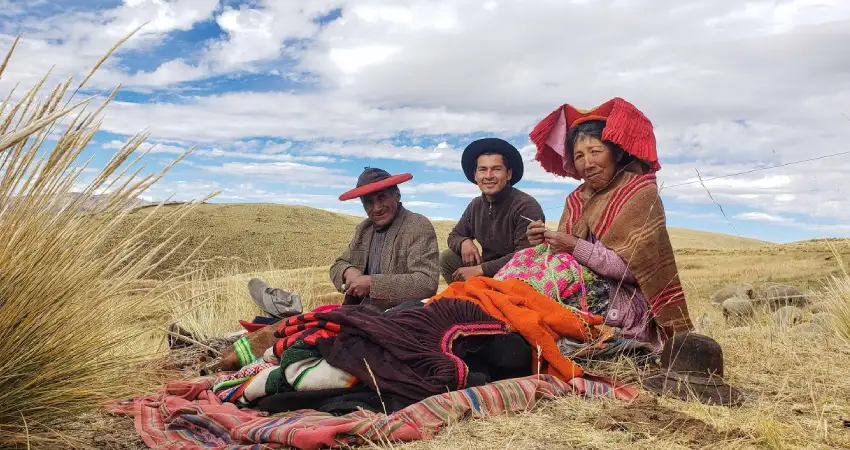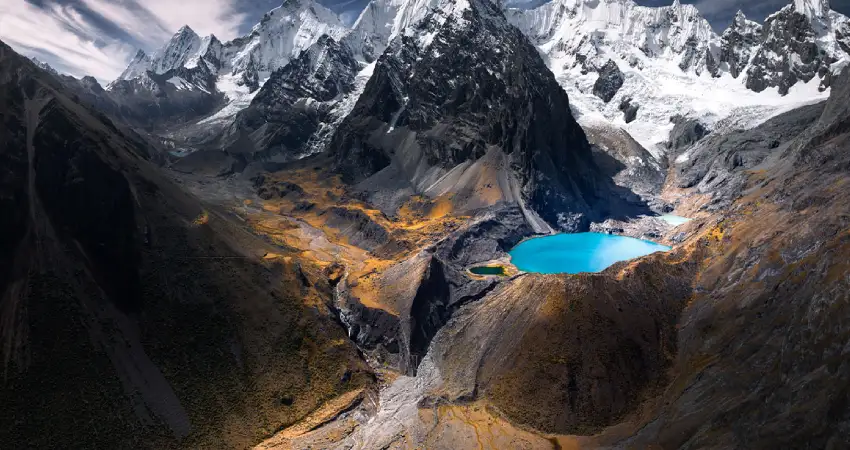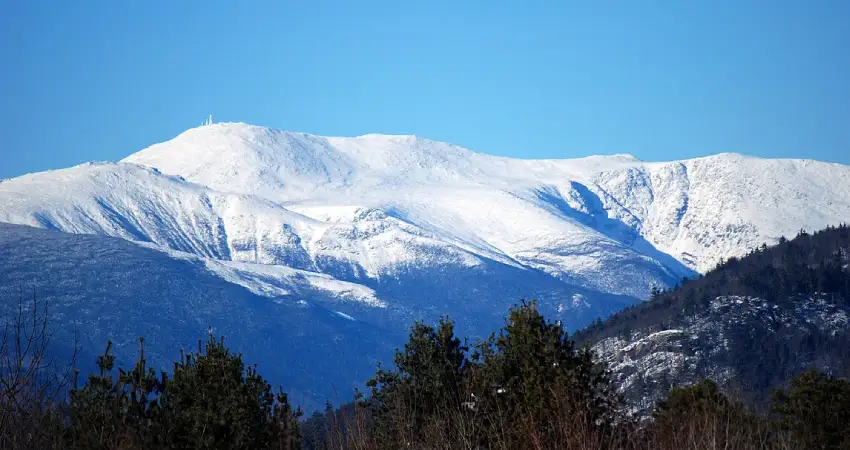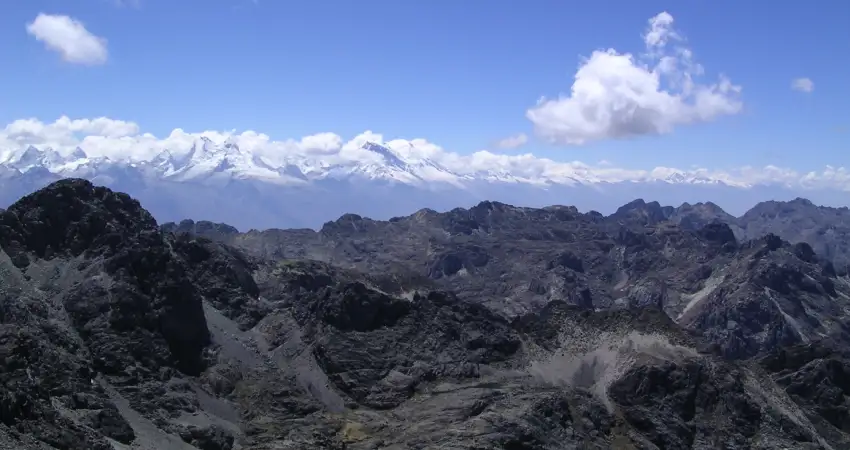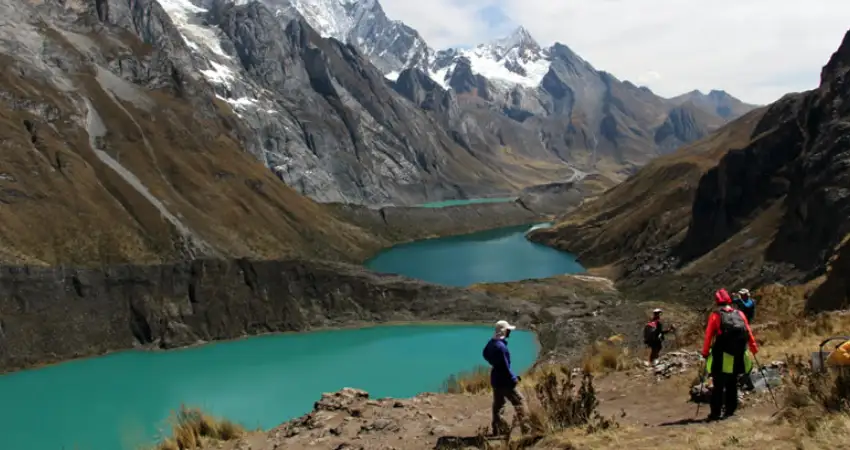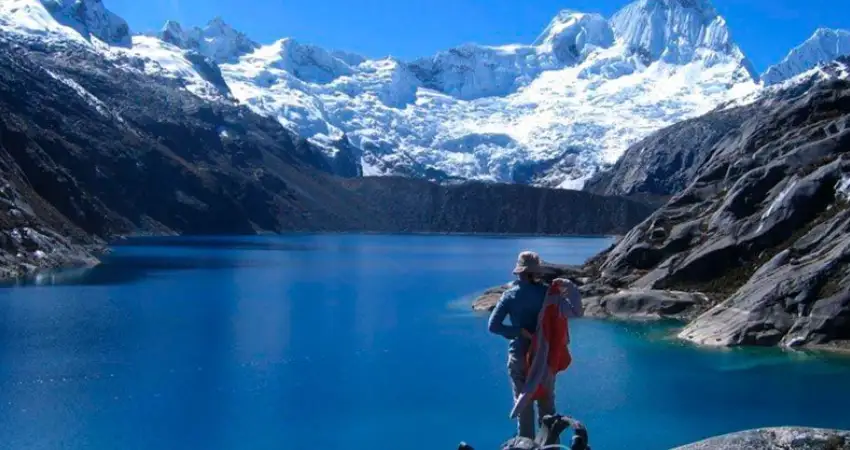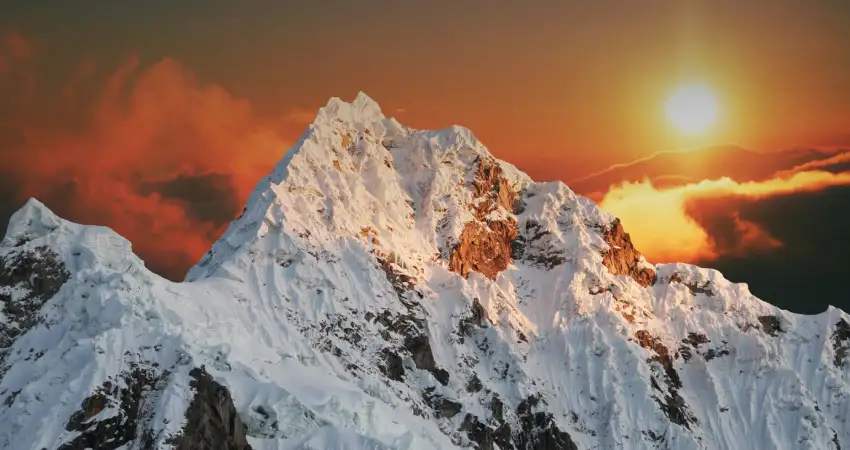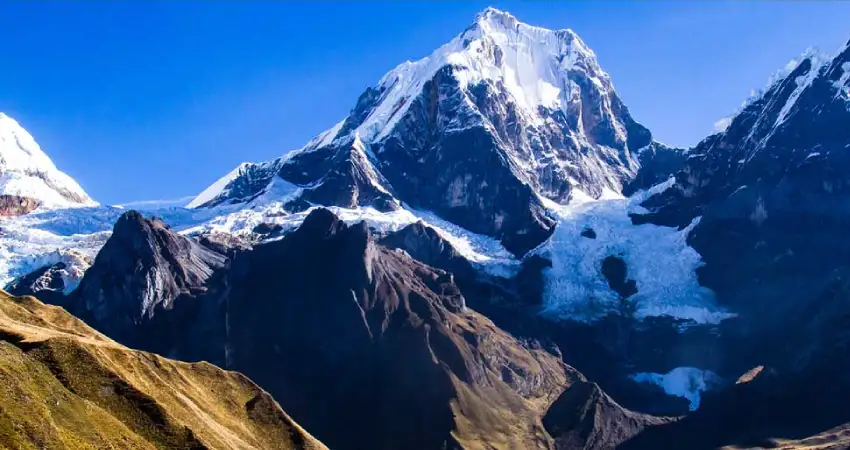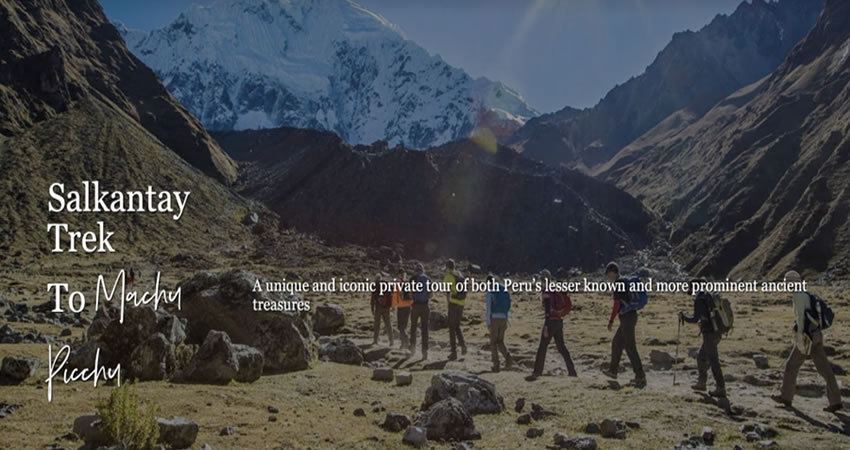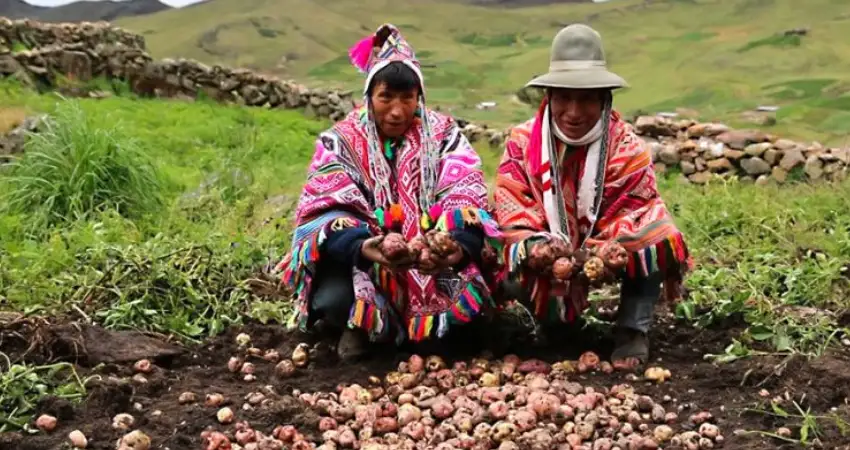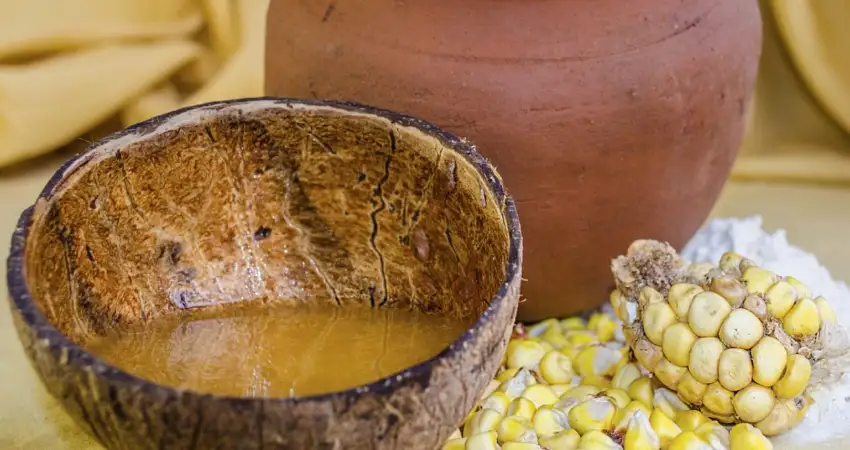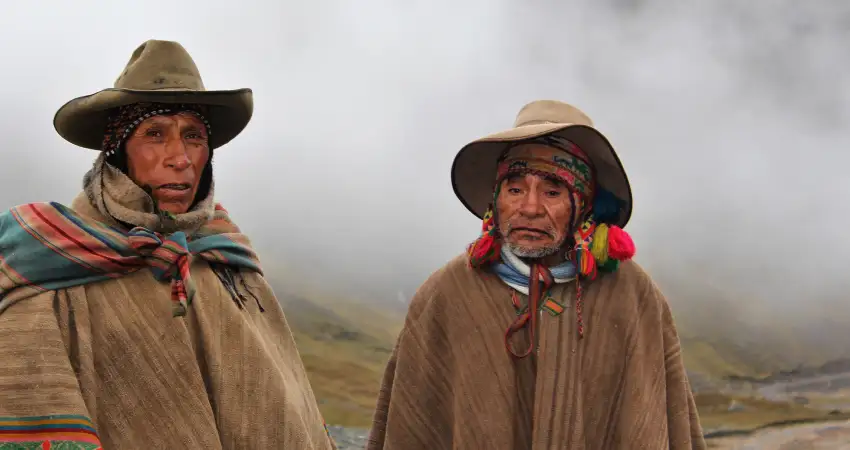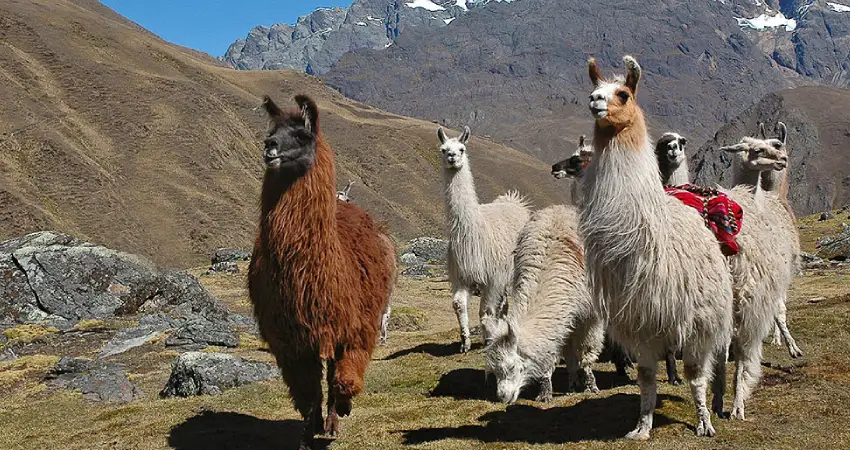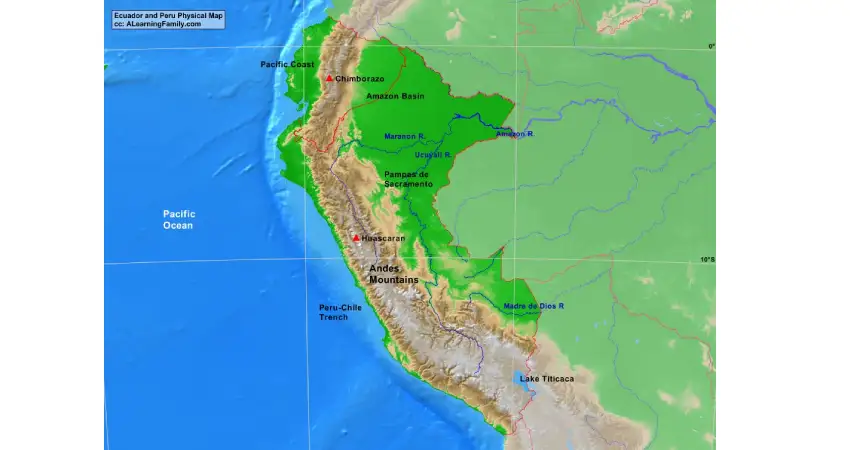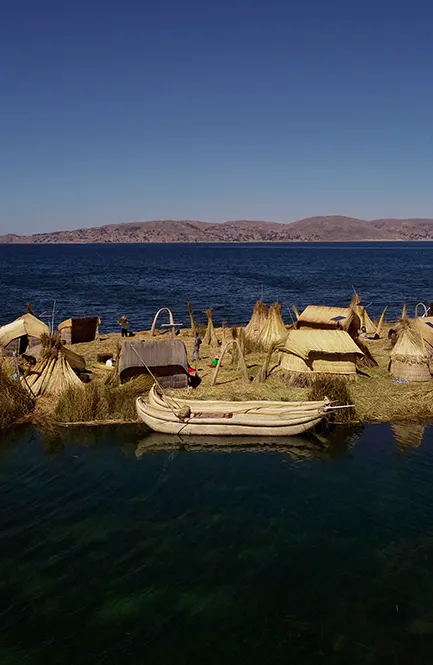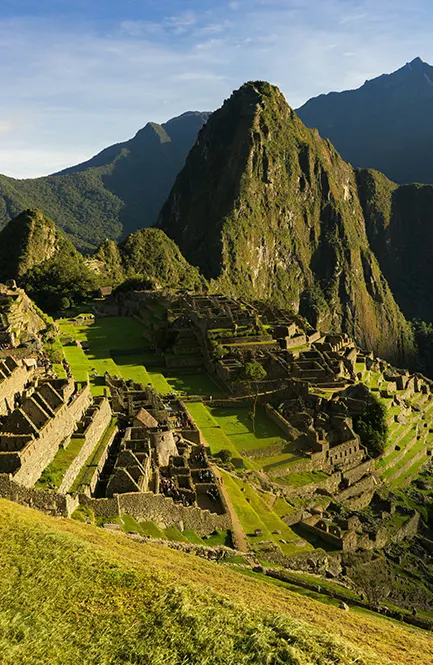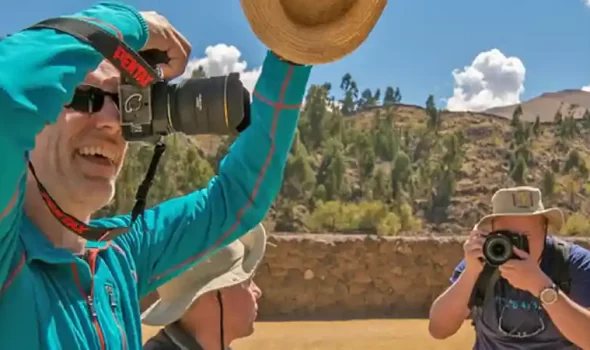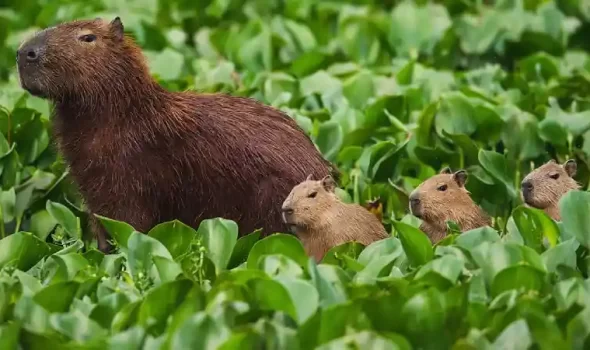1.- GEOGRAPHICAL OVERVIEW ABOUT PERUVIAN ANDES
One of the most important natural attractions that you can delight on your 2024 trip will undoubtedly be the Andes Peruvian, these are part of the Peuvian Andes mountains range which is considered the most extensive set of mountains in the world, located in different countries covering the north of Ecuador, passing through Peru and ending at the southern border of Chile with almost 1600 km of extension. Geographically speaking, the Peruvian Andes are divided into three parts:
- Northern Peruvian Andes
- Central Peruvian Andes
- Southern Peruvian Andes
Depending on the sector the size of its width varies, being the widest point with almost 400 km in size. It also stands out that within the Peruvian Andes mountains you can find some of the highest mountains of all America, as well as other unique natural landscapes such as valleys and plateaus where during the passage of time multiple cultures have developed leaving traces of their presence that today are part of the main tourist centers most visited around the world.
1.1.- White mountain range
It is considered the most popular sector of the Peruvian Andes, besides being very imposing to the naked eye. It is located in the region of Ancash, and it is considered the highest tropical mountain range in the world, containing in its interior the snow-capped Huascaran, considered the highest mountain in Peru with 6768 m above sea level. Its extension covers about 180 km long containing about 30 mountains quite steep in many of them exceed 6000 m. for those who are lovers of hiking and high mountain experiences this sector of the Peruvian Andes becomes a paradise and a new challenge because it also contains much of the glaciers and snow-capped mountains, having as a starting point the base of the same mountain that in many cases hides a beautiful lagoon. Thanks to its beauty and importance, the White mountain range, which belongs to the Peruvian Andes, is considered a protected area by the State in order to preserve biodiversity and unique landscapes.
1.2.- Black mountain range
Like the White mountain range, the mountain range is also part of the most popular Peruvian Andes. Its name is mainly due to the fact that it has less snow on its peaks and the mountains that form it are smaller reaching only up to 5100 m above sea level, however it plays a crucial role in the surrounding ecosystem since its presence is considered as a natural barrier that intervenes directly with the climate and distribution of water resources in the whole area. Being part of the Peruvian Andes, it is located within the Ancash region and offers a panoramic view of the popular White mountain range. For trekking enthusiasts, it is an attractive challenge worth completing.
1.3.- Huayhuash Mountain Range
Compared to other areas of the Peruvian Andes, the Huayhuash mountain range is smaller in size but covers several cities such as Ancash, Huanuco and Lima containing only 30 km in length, however it is cataloged as one of the points of the Peruvian Andes where you can appreciate the best natural landscapes. In its interior you can find incredible and famous mountains like the Yerupaja which is considered as the second highest mountain in Peru with 6635 m above sea level besides of course it also contains the Siula Grande which became popular because of the documented expedition that was recorded in video and book version called touching the void, for trekking lovers looking to visit the Peruvian Andes it becomes an unforgettable experience.
2.- NOTABLE PEAKS
2.1.- Huascarán
Of all the Peruvian Andes is considered as the highest mountain above sea level, also in all America ranks fifth. This part of the Andes Peruvian reaches a height of 6768 m above sea level and is located in the White mountain range inside the White mountain range Park. It has 2 peaks which are visibly notorious:
- Huascaran North (6655 meters above sea level).
- South Huascaran (6768 meters above sea level).
Visiting this destination in the middle of the Peruvian Andes is one of the top 10 essential things to do for trekking and high mountain lovers. It contains trails that are simple and parallel to some that represent more of a parade, thanks to the fact that for years the glacier has been producing a large amount of water and has become the main supplier of water for the populations that are in their environment.
| “People who never risk traveling die without knowing what the world is really like.” |
2.2.- Alpamayo
This is one of the most representative snow-capped mountains of the White mountain range as well as of the Peruvian Andes. It is frequently denominated as the most beautiful mountain in the world due to its appearance, simulating almost perfectly a pyramid, with 5975 meters above sea level it is popularly known for the image it offers from the west side, a vertical wall of ice can be appreciated which makes it a favorite place for those passionate about the activity of climbing mountains.
Of course this destination unlike other Peruvian Andes Mountains is not for beginners, it becomes a challenge even for the most experienced, on the other hand it became one of the most Instagrammable places in the world for the beautiful scenery it contains.
2.3.- Yerupajá
This peculiar mountain is located in the Huayhuash mountain range and stands out for being considered the 2nd highest mountain in all of Peru with 6635 meters above sea level is also known as “the butcher” because of the incredibly challenging routes it contains for high mountain adventurers, it is on the list of the most dangerous and complicated mountains to climb of all the Peruvian Andes.
Although it is less visited than the other snow-capped mountains, for the experienced adventurers it becomes a dream place that they seek to conquer at all costs and for those who have managed to reach its summit it was certainly an unforgettable experience because they relate the incredible panoramic views of the entire natural environment highlighting mainly the set of glaciers and beautiful lagoons.
3.- ALL YOU NEED TO KNOW ABOUT THE PERUVIAN ANDES
3.1.- Landscape
Within Peru is the sector of the Peruvian Central Andes allowing the existence of unique places such as the mountain of Machu Picchu, the Sacred Valley, the snowy mountains like the Salkantay, Ausangate, Apu Verónica and others. When visiting the Andean region of Peru you get to know that according to Andean belief everything is related in some way and the apus or mountains are no exception, in this case the mountains that make up the Andes Peruvian are providers of life for the water they provide and at the same time are important protectors of the whole environment. When visiting places like the Sacred Valley you can appreciate a natural landscape, relaxing and at the same time with a lot of energy because the mountains emit a feeling of energy that somehow reaches the human senses, no doubt the landscapes that you will appreciate will be the best of your life.
THE PERUVIAN ANDES ARE THE LARGEST MINERAL DEPOSIT IN THE WORLD
“Did you know that… the largest copper deposit in the world is the one located in Peru, Yanacocha, and that Chile and Peru together produce almost half of the copper extracted in the world. According to estimates they could add up to about 750 million tons of copper, in addition to 13 thousand tons of gold, 250 thousand tons of silver and 20 million tons of molybdenum which is a mineral that is generally used to harden steel.”
3.2.- Towns and villages
Many of the people who live in the Peruvian Andes are heirs of the lands, where for generations cultures have been formed and this territory on the Peruvian Andes comprises almost a quarter of the entire Peruvian territory. In many of these communities of the Peruvian Andes they speak only the Quechua language inherited by the Inca culture and predecessors. Of course, there are sectors such as those near Puno and Bolivia that also have the Aymara dialect due to cultural inheritance. A large part of this population subsists thanks to the activity of agriculture and grazing of Andean camelids such as llama and alpaca while others are dedicated to raising sheep. In fact it is very common that when you do an activity in the Peruvian Andes such as hiking you will see small groups of houses and people who perform these activities on a daily basis, being able to live with them is one of the best things you can do during your visit to the Peruvian Andes.
3.3.- Food
Due to the activity of agriculture many of the people living in the Peruvian Andes have completely adapted to the challenging environment. Making use of the traditional potato tuber as the main element of their traditional food, more than 4000 varieties of potato were grown throughout the Peruvian Andes. In some cases it was used as part of the exchange with other people to get more resources and inputs and thus vary their diet. It also has much participation the corn that is part of the basic food being one of the most versatile foods because in its normal state can be dried and stored until it is necessary to use, this input is highly prized as it is the basis for the preparation of the drink preferred by people living in the Andes Peruvian, the chicha de jora or acja was fundamental in the Inca culture and now in these populations.
3.4.- Culture and tradition
Their sense of tradition and culture is part of their Andean belief and is always present in all people and populations of the Peruvian Andes, however there is so much diversity from one place to another that its social structure has been modified and customized in each case which generates that they have different styles of textiles, ceramics, buildings, music and dance. But this does not diminish in the least the identity that a Peruvian has, on the contrary, it drives him to feel proud of everything that Peru has to offer.
3.5.- Wildlife
There are multiple species that inhabit the Peruvian Andes being the most representative of all the Andean condor, according to Andean belief this bird has the ability to communicate with the gods directly and is the protector of the valleys it travels, there is also the puma which is considered the protector of the earth, although these are free and wild animals there are also others that are more domestic as the llama and alpaca that are used for daily activities such as cargo, transportation and others. Depending on the place you visit you might find other incredible animals such as the hummingbird, spectacled bear and even the cock of the rock.
4.- FAQs ABOUT THE PERUVIAN ANDES
- What is the best time of year to visit the Peruvian Andes?
Within the Peruvian Andes there are 2 seasons, the first is considered the rainy season that occurs from November to April, at this time of the year there are more frequent rains and in the high areas of the Peruvian Andes it snows which makes it dangerous and complicated. The second season is considered the best time to visit the Peruvian Andes and occurs from May to October, also considered the dry season. This time of the year is ideal because there is not much rain, the weather is more stable and hiking or outdoor activities are less complex.
- What vaccinations or health precautions are recommended for traveling to the Peruvian Andes?
No vaccine, visiting the Andes Peruvian only requires adaptation to the altitude, plus you may have some previous experience in visiting high places. If it is the first time you do it, consult with our experienced advisors to recommend easier places to visit, remember that there is an option for everyone.
- Are there any age restrictions for high-altitude treks like the Inca Trail?
There are no age restrictions but there are recommendations, in activities similar to the Inca Trail it is best that participants are at least 12 years old or older so that they can have the resistance to the road and frequent change of geography.
You’ve already discovered more about the Peruvian Andes and how to get to visit them, now what’s your excuse to postpone your trip? Auri Peru has the best options that you can take advantage of during your 2024 trip, contact us now and start your next adventure.
“I am not the same after having seen the moon shining on the other side of the world.”




